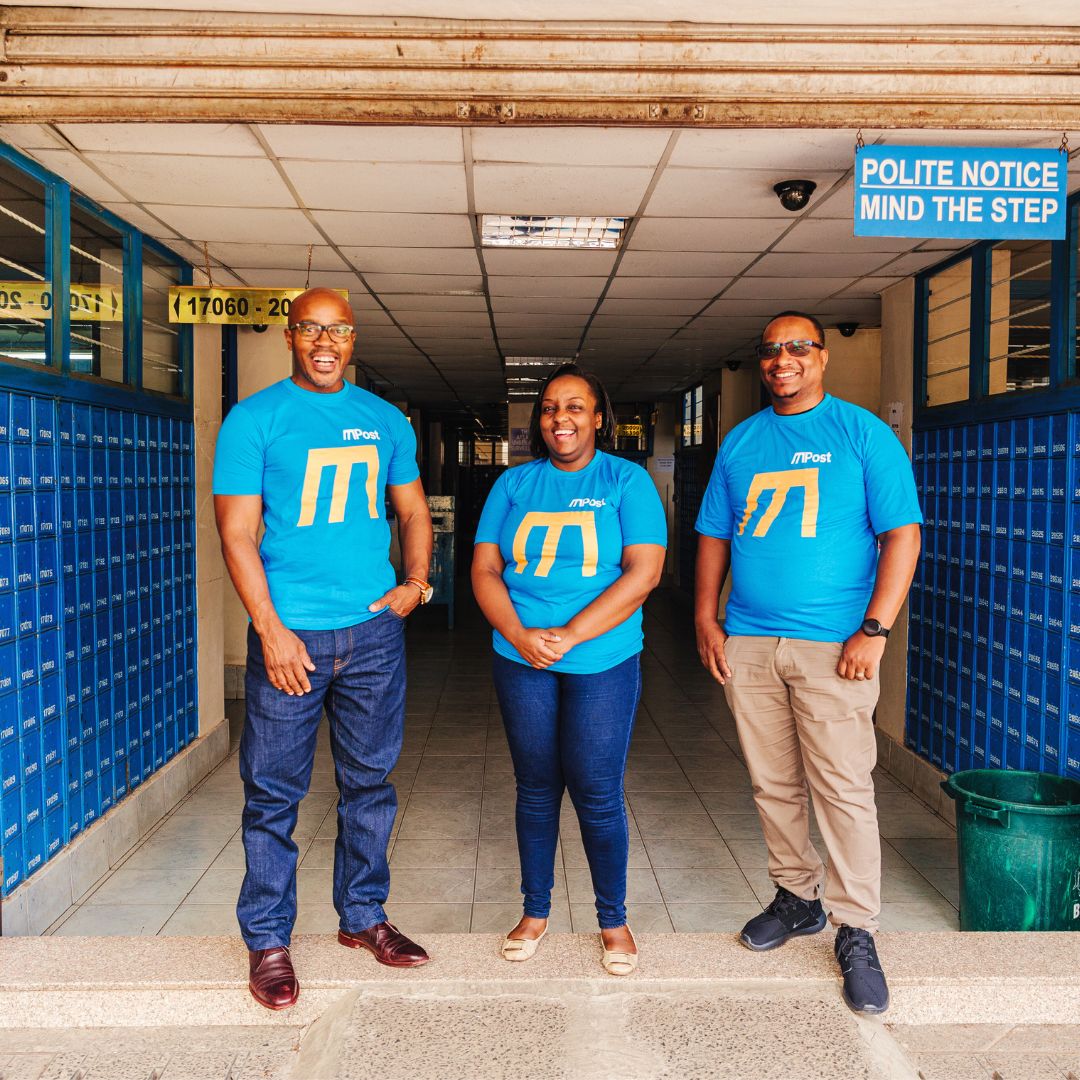MPost Is Turning Phones Into Addresses In Fresh Push To Fix African E-Commerce

In the heart of Africa’s bustling tech scene, one long-standing startup remains steadfast in tackling a challenge that might not grab headlines: the lack of reliable physical addresses; a problem that plagues many developing countries.
MPost, a Kenyan startup, has developed a digital addressing system that turns mobile phone numbers into physical addresses, a solution that promises to revolutionise postal services and e-commerce in regions where traditional addressing is problematic.
MPost was founded in 2016 by Twahir Mohamed and his co-founder. The idea for MPost emerged from the founders’ frustrations with the inefficiencies and inadequacies of the postal system in Kenya. “We realized that people needed a way to receive parcels and important documents without the hassle of unreliable postal addresses,” Twahir tells WT.
Over 80% of the world’s population lacks addresses, according to the UN. This disparity creates a ripple effect, hindering access to essential services like e-commerce, banking, and even receiving important documents. MPost’s solution is inclusive in its simplicity: it leverages the near-ubiquity of mobile phones, allowing users to register their phone number as a verified address.
From the onset, the opportunity was clear: providing a reliable digital addressing system could not only improve the efficiency of postal services but also unlock the potential of e-commerce in regions with poor infrastructure.
Value Prop
MPost’s core innovation lies in its ability to transform a mobile phone number into a digital postal address. This simple yet effective solution allows users to receive parcels and important documents at their convenience. The system integrates seamlessly with the postal services, ensuring that deliveries reach the intended recipients.
Initially, MPost focused on individual users, particularly those needing reliable addresses for receiving government documents and parcels. However, as Twahir explains, the startup soon realised the broader applicability of their solution: “Our product can be used by corporates too, not just individuals. We can acquire users from corporate clients like insurance companies and banks who require address verification for KYC purposes.”
The initial response to MPost was fairly positive. The startup saw over 2000 registrations on its first day, signalling substantial demand for its solution. Despite the early success, the team had to refine their technology and stabilize the platform. By the end of 2017, MPost had grown organically to around 40,000 users purely through word of mouth, according to the Founder.
This organic growth was a key indicator of product-market fit, demonstrating the value and utility of MPost’s service. However, to scale further, the team knew they needed to invest in marketing and awareness creation.
Milestones and Setbacks
MPost’s journey to secure funding was marked by both triumphs and challenges. The startup participated in various competitions and accelerators, gaining significant recognition. In 2018, they entered Startupbootcamp in South Africa and later received an endorsement from the Universal Postal Union.
Their first major funding round, however, came with its complications. The team secured commitments for USD 1.9 M but faced setbacks when a key investor failed to fulfil their USD 1 M commitment. This shortfall forced Twahir to make personal sacrifices.
“I had to sell a house, had to sell a car to fund the business,” reveals Twahir, showcasing the immense personal sacrifice required.
Internal conflicts in 2020 further stalled growth, leading to a period of rebuilding and refocusing. The startup also faced the broader challenge of navigating the COVID-19 pandemic, which disrupted its operations and marketing plans.
Despite these challenges, MPost managed to secure follow-on funding from existing investors like Dr Trevor Tomkins and Startupbootcamp, followed by backing from the prominent Techstars accelerator , Renew Capital late last Year and Sabuni early this year.
This infusion of capital and support allowed them to launch commercially and begin above-the-line marketing efforts. By 2022, their user base had grown to 200,000, according to Twahir , who says the startup’s user base currently boasts around thrice that figure.
Expansion and New Markets
Recognising the need to diversify and expand beyond Kenya, MPost set its sights on new markets. Rwanda emerged as a promising opportunity, facilitated by supportive government policies and incentives. The Rwanda Development Board and Angaza Capital provided the necessary backing, offering perks such as tax exemptions and technical assistance.
The decision to relocate their headquarters to Rwanda in 2023 was strategic. It allowed MPost to leverage these incentives and set the stage for further expansion into other African countries. Twahir highlights the significance of this move: “Rwanda is a good story. They gave us all these perks, and that’s when we decided to move our headquarters.”
Future Prospects and Plans
Looking ahead, MPost aims to build the largest digital addressing infrastructure in Africa. They are currently operational in Kenya, Rwanda, Burundi, and through a partnership with delivery company Yobante Express, in Zambia and other African countries. The startup is also exploring opportunities in North America to facilitate seamless e-commerce transactions between the continent and Africa.
Their innovative approach has garnered interest from banks and insurance companies, with ongoing negotiations for commercial contracts. The ultimate goal is to enable e-commerce and improve postal services across Africa, thereby contributing to economic growth and development.
MPost’s journey is a testament to the innovative spirit thriving in lesser-known corners of the tech world. They are addressing a critical yet often overlooked issue, leveraging mobile technology to bridge the digital divide and empower millions across Africa.
As Twahir himself emphasises, “Our vision is to build the largest verifiable digital addressing infrastructure so that people are able to engage in e-commerce which will move them out of poverty,” potentially paving the way for a more connected and inclusive future for millions.
Interview by: NJ
Edited by : Nzekwe Henry